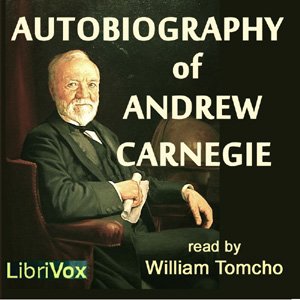Book Review: The autobiography of Andrew Carnegie

The autobiography of Andrew Carnegie tells one story about Carnegie's life after another starting from childhood and ending with his meeting of the German Emperor. Some interesting things I learned about him was that, like most of the other highly successful people I have read about, he was an avid reader, at least in his childhood. Like Edison, he also started his career in telegraphy. He rose through the ranks by developing skills that made him unique in his profession (I think it was the ability to transcribe by hearing the telegraph), and gained further recognition from his superiors by taking responsibility beyond his title. The overall attitude seemed to be that, if you are competent and work for successful (and therefore also competent) people, they will want to give you opportunities, and occasions to strive and achieve. Later in his career, Andrew mirrors this attitude when he laments one of his former employees saying (something along the lines of) "He was a mechanical genius but was a terrible businessman, and was intent on going out to do business on his own. If he had worked with us and focused on what he knew best, he could have died a millionaire."
Along a similar vein, Mr. Carnegie gives an interesting piece of investment advice. "Put all of your eggs in one basket and then watch that basket." He says this in reference to many business owners who posess true talent and if they had invested in their own businesses, rather than some endeavor far away in a field that they understand in far less detail, then they could have seen far greater returns, far closer to home. It's worth noting that he made this statement before index funds came into existence, and the comment was in relation to people who themselves owned businesses, but he never advocated going into debt to further your business. In fact, he considered that one of the reasons his partnerships were so resilient in times of economic crisis was due the practice of never accepting a loan unless they knew they could pay it off within a reasonable period of time.
Having been raised in a family of staunch republicans and growing up through the civil war, politics plays a significant part of the book as well. Andrew discusses his role in the telegraph office, relaying messages for the military during the civil war, he talks about meeting the President and arguing about foreign affairs and ends the book recounting his meeting with the German Emperor, who he said may have been the first royal he actually liked. He discusses settling disputes with labour unions and the efforts he went to in order to maintain a good relationship with his workers, and he tells stories about some of his philanthropic efforts as well. The desire to work with people in a way that makes both parties better off is echoed throughout the book, and it certainly sheds a different light on the so-called robber-baron. I highly recommend reading it.